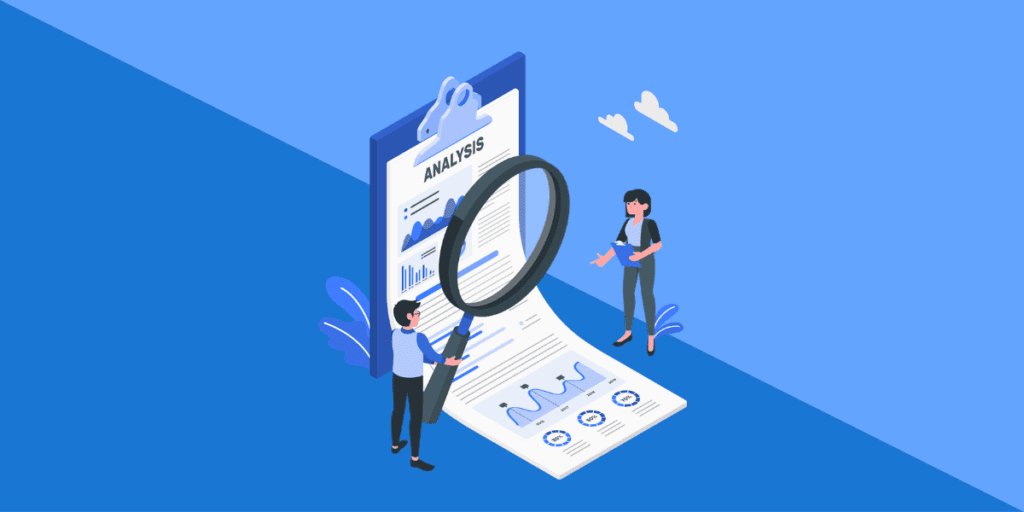Mirror mirror on the wall, which is the most difficult CFA level of them all?
While opinions differ among us, I think quite a lot of CFA charterholders agree that the answer is between CFA Level 2 vs Level 3.
In this article, we start of by looking at the hardest topics by level. Then, we focus on the reasons why candidates felt that CFA Level 2 or Level 3 were particularly challenging, in hope that you’ll avoid the same pitfalls they experienced in the next steps in your CFA exams!
Read on, and you’ll be well prepared compared to the rest of the other first-timers!
Hardest topics by CFA Level
Generally, our research shows that candidates’ CFA Level 1 hardest topics are Financial Statement Analysis, Fixed Income, Quantitative Methods, Derivatives and Economics.
Meanwhile, CFA Level 2 most difficult topics are typically Financial Statement Analysis, Portfolio Management, Ethics and Derivatives.
Finally, CFA Level 3 hardest topics are Fixed Income, Ethics, Equity Investments, Alternative Investments and Derivatives.
The most difficult CFA Level is either CFA Level 2 or Level 3

For CFA charterholders, I think it is general consensus that CFA Level 1 is the easiest amongst the 3 levels of CFA exam.
The real debate here is between CFA Level 2 vs Level 3, as deciding which is the most difficult CFA level between these two exams is less clearcut.
From an objective perspective, CFA Level 3’s difficulty is equivalent to a Masters degree, whilst CFA Level 2 is equivalent to a Bachelor’s degree program. But that isn’t too useful in itself when comparing difficulty between CFA levels since CFA Level 3’s difficulty benchmark includes having passed CFA Level 2.
CFA Level 2 is basically Level 1 on steroids: both are multiple choice questions, but the key difference is CFA Level 2 is a significant step up, with four times more content to learn compared to Level 1.
On the other hand, moving from CFA Level 2 to Level 3 is less fun. The introduction of the somewhat more unpredictable essay (constructed response) format is introduced which generates subjectivity in your studies. This is what makes it tougher, because it is difficult to measure progress precisely.
Even within the group of CFA charterholders here at 300Hours, we couldn’t even agree between us which CFA level is the hardest!
Here are a few reasons why we all found Level 2 and Level 3 challenging, in their own individual ways.
Reasons why CFA Level 2 is the hardest CFA level
CFA Level 2 is a big step up in content compared to Level 1

CFA Level 2 isn’t like Year 2 in university.
Simply put, the same approach, routine, or degree of effort that got you through CFA Level 1 is not going to be enough. I made that mistake in Level 2 myself and paid the price of retaking.
With the same amount of topics as Level 1, CFA Level 2 goes into each topic in significant depth, requiring much more reading time to go through.
Level 2 vignettes take up more time, despite having less questions than Level 1

In CFA Level 1, all multiple choice questions (MCQs) are independent of each other, and are often a lot shorter and more direct compared to Level 2 and 3. Candidates have 1.5 minutes per question.
In CFA Level 2, each of the two exam sessions are comprised of 8-11 vignettes, which is a passage describing a certain scenario, followed by 4-6 questions about that scenario. With 88 vignette-style questions in 4 hours and 24 minutes, each Level 2 question is allocated 3 minutes, in theory.
In reality, vignette-style questions can be significantly more time consuming than Level 1’s style of questions:
- Before answering a single question, candidates have to read a passage often longer than a full page, understanding the scenario and digesting important points.
- When answering questions, you often have to refer back to the passage and reread certain areas. This takes up a lot of time that can only be countered by practice.
Level 2 candidates can sometimes make the mistake of thinking Level 2 would be easier from a time management perspective. But this isn’t true due to the vignettes, and for some candidates it can be even more of a time challenge.
Vignette questions are more challenging than Level 1’s independent questions

Because of the vignette format, CFA Level 2 questions go into a lot more detail than Level 1.
Exam writers now have a full page (and then some) to explain their scenario, and the questions therefore can test multiple concepts and require a lot more thinking or calculation.
Having less questions (and even less vignettes) also makes the exam less ‘topic diverse’.
What I mean by that is that one vignette can concentrate heavily on a certain topic, and if a candidate is caught out, they stand to lose up to 4-6 questions worth of points (i.e. 5-8% of the total exam score).
This makes ditching topics a lot more risky compared to Level 1, and in fact something we strongly discourage since all the 10 Level 2 topics can be tested evenly.
Knowing which topics to focus on is more important than ever in Level 2

I personally found Level 2 to contain a lot more material than Level 1, and the recent topic weight changes made it even tricker to focus on a select few topics only.
Use a study plan (ours is free!) and follow a sensible study order to maximize efficiency to ensure you cover all key topics first.
Reasons why CFA Level 3 is the hardest CFA exam
While CFA Level 2 is a big step up from Level 1 in terms of sheer volume of content, for some candidates that is not comparable to the extra complications that Level 3 brings with the essay format (constructed response).
The problems manifests itself in 3 main ways:
Less calculations, more reading and no guessing

I don’t know about you, but for me there is a perceived ease of studying when you’re glancing over words, instead of looking through calculations and formulae you know you have to know for CFA Level 2.
The passive reader in you will glaze over the endless paragraphs of texts, making your study session less efficient as you may have to reread them later when you hit the practice exams and realized that you don’t know anything.
Oh, and there is no guessing too since the written section requires you to be able to remember concepts you’ve learned and apply them.
It’s hard to gauge progress in essay practice papers

Unlike Level 1 and 2, where you can measure your progress objectively as you progress through all the practice papers, doing Level 3 practice papers is a double-edged sword.
Your answers almost always won’t exactly match the ‘model answers’ given, and it is tough to take a fair judgment in marking them yourself as you’d want to ensure that it is a fair representative of the exams marking guidance.
Too harsh, and you’ll discourage and stress yourself unnecessarily; too lenient, you may give yourself a false sense of confidence, only to crumble in the actual exam.
Not having an objective way to mark yourself means that you have less certainty of measuring progress, which isn’t great as you need to measure it to improve it.
Luckily, we have a guide on how to accurately self-grade your constructed response practice papers to counter this issue – check it out!
Candidates didn’t practice doing constructed response questions under timed conditions

Due to the difficulty of self-grading essay questions, many candidates chose not to do the essay practice questions under time-based conditions as well. Big mistake.
Instead, they focused on making sure they understand the answer style that is required and learning how to apply the principles learned in CFA Level 3 syllabus without over stressing themselves about scores.
That’s what Sophie did too. However, that lack of time management practice during the constructed response section almost costed her her CFA charter.
If you’re taking the CFA Level 2 or 3 this year, keep in mind the above points and hopefully you’re better prepared for the challenge ahead. Best of luck!
Meanwhile, you may find these related articles particularly useful:
- Free & Upgraded – 300Hours CFA Study Planner
- CFA Pass Rates: How Difficult Are CFA Exams?
- CFA Level 2: How to Prepare & Pass CFA in 18 Months
- CFA Level 2 Tips: Top 10 Advice from Previous Candidates
- CFA Level 3: How to Prepare & Pass CFA in 18 Months
- CFA Level 3 Tips: Top 10 Advice from Previous Candidates
